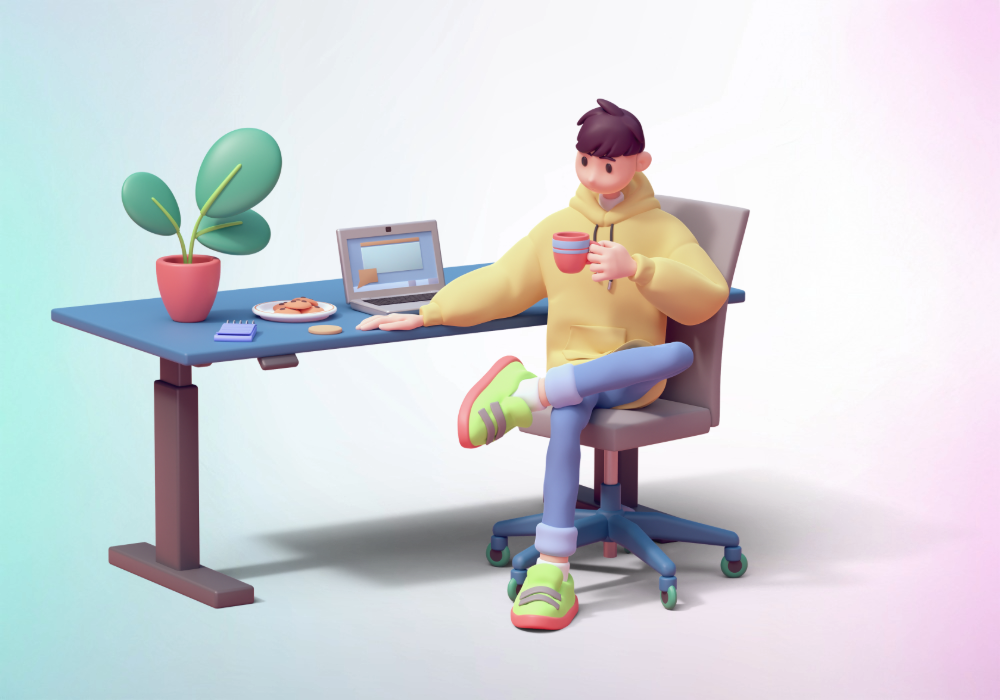In the digital age, your website often becomes your brand’s first handshake with customers. It reflects who you are, what you offer, and how professional your business appears. That’s why hiring the right web developer is one of the most critical business decisions you can make. Whether you’re launching a new website or redesigning an old one, choosing wisely can mean the difference between a thriving online presence and one that quietly fades away.
Understanding the Role of a Web Developer
A web developer is the professional responsible for turning your design ideas into a fully functional website. They handle everything from coding and layout to performance, security, and usability. In short, they make sure your website doesn’t just look good — it works flawlessly for your visitors.
A good web developer ensures that your website is:
- Visually appealing and aligned with your brand identity
- Mobile-friendly and optimized for different devices
- Built for fast loading and SEO performance
- Secure and easy to maintain over time
Before you hire anyone, it’s important to understand that web developers come with different skill sets. Some specialize in front-end design (what users see), while others handle back-end programming (the logic and data). The best developers combine both.
Types of Web Developers You May Consider
When you begin your search, you’ll likely encounter several kinds of professionals. Knowing the difference helps you hire the right person for your specific project.
1. Full-Time or In-House Developers
These developers work directly with your company, often on a salary basis. They’re ideal if you need continuous website updates or long-term support. However, they’re also the most expensive option due to hiring, training, and operational costs.
2. Freelance Web Developers
A freelance web developer works independently, often handling projects for multiple clients. They’re flexible, cost-effective, and capable of delivering high-quality results without the overhead of an agency. Freelancers usually communicate directly with you, which speeds up feedback and ensures a personal touch.
3. Agency Developers
If your project is complex or time-sensitive, hiring a development agency might be suitable. Agencies typically provide a team — designers, developers, SEO experts — but their prices are higher and processes more rigid.
For most small and medium businesses, a freelance web developer offers the best balance between cost, flexibility, and quality.
What to Look for When Hiring a Web Developer
Choosing the right person means evaluating more than just their technical skills. Here’s what to consider before making a decision.
1. Experience and Portfolio
Review their past projects carefully. A strong portfolio shows not only technical competence but also creativity and attention to detail. Look for websites similar to your niche — an experienced web developer should have examples that align with your business goals.
2. Technical Expertise
A reliable developer should be fluent in core technologies like HTML, CSS, JavaScript, and PHP. If you plan to use a CMS like WordPress, ensure they have strong WordPress experience. Many businesses today rely on a freelance web developer skilled in WordPress for its flexibility and ease of management.
3. SEO and Performance Awareness
Your website’s success isn’t just about design — it’s also about visibility. A technically solid site built by a developer who understands SEO structure (clean code, meta tags, fast loading, mobile responsiveness) will perform better in search rankings.
4. Communication Skills
Good communication is essential. A developer who listens, explains things clearly, and provides regular updates saves you time and frustration. This is especially important when working with a freelance web developer remotely.
5. Post-Launch Support
Websites require updates, security checks, and maintenance. Clarify whether your developer provides ongoing support or if it’s a separate service. Reliable professionals will offer maintenance options or at least recommend secure practices.
Questions to Ask Before You Hire
Here are some smart questions that help you assess whether a developer is the right fit:
- Can I see examples of your recent projects?
- What technologies or CMS platforms do you specialize in?
- How do you handle website security and performance optimization?
- Will the website be easy for me to edit or update later?
- What’s your estimated timeline and pricing structure?
- Do you provide ongoing maintenance or training after launch?
Asking these questions upfront prevents miscommunication and sets realistic expectations for both sides.
Why Many Businesses Prefer Freelance Web Developers
Many companies today are turning to freelance web developers rather than hiring full-time or agency teams — and for good reasons.
- Cost-Effective: You pay only for the work you need, with no long-term commitments.
- Flexible: Freelancers adjust to your schedule and project requirements easily.
- Personalized Attention: You deal directly with the person creating your website.
- Faster Turnaround: Fewer approval layers mean quicker delivery.
Freelancers are often self-motivated professionals who rely on satisfied clients for repeat business. That means they’re highly invested in delivering quality work on time.
Common Mistakes to Avoid When Hiring
Even experienced business owners can make mistakes when hiring a web developer. Avoid these pitfalls:
- Choosing by price alone: The cheapest option often leads to poor quality or hidden costs later.
- Ignoring SEO and performance: A visually appealing site that doesn’t load fast or rank well won’t help your business.
- No clear project scope: Always define your requirements — pages, design style, functionality — before hiring.
- Skipping contracts: Always have written terms covering payment, delivery timeline, and maintenance.
A clear agreement keeps both you and your developer protected and aligned.
How a Good Web Developer Impacts Your Business
A professional web developer doesn’t just build a site; they build your online credibility. Your website becomes:
- The centerpiece of your marketing efforts
- A tool to generate leads and sales
- A representation of your business values and trustworthiness
When built properly, it can support your business for years with minimal upkeep — and scale as your company grows.
Working Successfully with a Developer
Once you’ve chosen the right person, set up an effective collaboration process:
- Share clear goals and examples of sites you like.
- Provide timely feedback to avoid project delays.
- Use collaboration tools (email, Trello, or Slack) to track progress.
- Keep communication open and transparent.
A successful project depends as much on good teamwork as on technical expertise.
Why I Offer Freelance and Remote Web Development Services
As an experienced freelance web developer, I’ve helped businesses across different industries design, build, and launch websites that drive results. My services include:
- WordPress website development
- Custom theme design and optimization
- E-commerce setups with WooCommerce
- Website maintenance and performance tuning
- SEO-friendly structure and speed improvements
Working remotely allows me to collaborate with clients worldwide without compromising quality or communication. Whether you’re starting from scratch or want to redesign an existing site, I can provide a complete solution tailored to your goals.
Final Thoughts
Hiring a web developer is more than just outsourcing technical work — it’s forming a partnership that directly affects your brand’s success. Take time to review portfolios, discuss your goals, and choose someone who aligns with your vision.
Whether you partner with an agency or a freelance web developer, focus on quality, communication, and long-term value. A well-built website is not an expense — it’s an investment that pays off through trust, traffic, and conversions.

